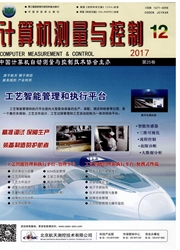

 中文摘要:
中文摘要:
这份报纸为动态航行放论述一个新随机的 weighting 评价方法。这个方法采用随机的 weighting 评价的概念为控制单个观察和运动学的模型错误的骚乱估计系统状态噪音和观察噪音的协变性矩阵。足够地利用观察信息满足剩余向量和革新向量的实际要求,因此在州的参数评价上削弱运动学的模型错误和观察模型错误的扰乱的效果。随机的 weighting 评价的理论和算法为估计观察剩余向量和革新向量的协变性矩阵被建立。这个随机的 weighting 评价方法为在动态航行改进放的精确性提供一个有效答案。试验性的结果显示出那与相比过滤的 Kalman ,过滤的扩大 Kalman 和过滤的适应 windowing ,建议方法能适应地决定观察错误和州的错误的协变性矩阵,有效地抵抗系统错误和观察错误引起的骚乱,并且显著地为动态航行改进放的精确性。
 英文摘要:
英文摘要:
This paper presents a new random weighting estimation method for dynamic navigation positioning. This method adopts the concept of random weighting estimation to estimate the covariance matrices of system state noises and observation noises for controlling the disturbances of singular observations and the kinematic model errors. It satisfies the practical requirements of the residual vector and innovation vector to sufficiently utilize observation information, thus weakening the disturbing effect of the kinematic model error and observation model error on the state parameter estimation. Theories and algorithms of random weighting estimation are established for estimating the covariance matrices of observation residual vectors and innovation vec- tors. This random weighting estimation method provides an effective solution for improving the positioning accuracy in dynamic navigation. Experimental results show that compared with the Kalman filtering, the extended Kalman filtering and the adaptive windowing filtering, the proposed method can adaptively determine the covariance matrices of observation error and state error, effectively resist the disturbances caused by system error and observation error, and significantly improve the positioning accu- racy for dynamic navigation.
 同期刊论文项目
同期刊论文项目
 同项目期刊论文
同项目期刊论文
 期刊信息
期刊信息
